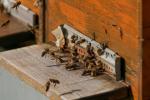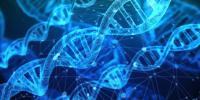H2020 PIGWEB Project: An infrastructure for experimental research for sustainable pig production
- Type Project
- Status Signed
- Execution 2021 -2026
- Assigned Budget 4.999.992,57 €
- Scope Europeo
- Main source of financing Horizon 2020
- Project website Proyecto PIGWEB
Research infrastructures (RIs) can play a key role in achieving the objectives of the Green Deal and the Farm to Fork strategy through a sustainable "Pig to Pork" approach. The EU-funded PIGWEB project will strengthen the pig research community by expanding access to RIs and promoting cooperation between scientists, the pig industry, and stakeholders.
The initiative will also harmonize protocols and best practices, promote standards, collect and manage project data, disseminate results, and provide undergraduate and graduate training. In addition, researchers will develop noninvasive techniques to study pig digestion and blood sampling, as well as indicators of welfare, behavior, and body composition. Finally, a set of research tools will be developed to identify traits relevant to sustainable pig production.
The response to the three TNA calls exceeded expectations, contributing to the expansion of the international network. In addition, an interactive map of research infrastructures in Europe was developed. Standard Operating Procedures (SOPs) were developed for traits routinely measured in research facilities, and the development of SOPs for experimental procedures is ongoing. Surveys were conducted on national procedures and the differences between local practices regarding ethical standards and the ethics approval process for experiments involving pigs, which will be used to draft a policy report.
An internal survey and several events were organized to develop a common understanding of the data landscape and promote the skills and practices needed to produce FAIR data (findable, accessible, interoperable, and reusable data). Dissemination, training, and technology transfer activities targeted various stakeholders and actors. This included the establishment of an open, highly active PIGWEB Junior Community with more members than the PIGWEB community itself. Different non-invasive and minimally invasive experimental methods that could be used to replace the more invasive reference methods were evaluated. This included the use of NIR scanning of feed and fecal samples to replace ileal cannulation of pigs to determine nutrient digestibility, and the use of different techniques to obtain and analyze metabolites in blood, as possible alternatives to animal catheterization.
The activities in “New and Refined Methods for Measuring Behavior, Health, and Body Composition” cover a wide range of methods that are either inherently complex or complicated and/or laborious to measure. Indicators were sought in samples that are not too difficult to obtain (e.g., saliva, breath, feces) and, when necessary, using more invasive samples (e.g., blood, tissue). A joint experiment was conducted to evaluate different techniques for estimating body composition relative to the gold standard (i.e., dissection). The novelty of the approach is that the skills and equipment (e.g., CT scanner) of different partners were brought to a single location to perform the measurements.
To develop a research toolkit based on non-invasive and minimally invasive methods, activities conducted up to the reporting period focused on using existing big data to develop modeling algorithms that provide insights into growth performance, nutritional efficiency, carcass nutritional composition, and health and welfare status. The PIGWEB community consists of highly motivated researchers at different career stages. Their motivation and enthusiasm greatly facilitate the management and coordination of the overall project. The PIGWEB project is developing very smoothly (as confirmed on several occasions by the Scientific Advisory Board) and is expected to meet most of its expectations.
PIGWEB aims to strengthen the pig research community by providing and facilitating access to research infrastructures (RIs), reinforce the culture of cooperation between the research community and industrial and social stakeholders, and improve and integrate the services provided by RIs. This will contribute to the development of innovative and ethical solutions for sustainable pig production systems. PIGWEB fully supports the European Green Deal to make Europe the world's first climate-neutral continent by 2050.
The strategy aims to protect, conserve, and enhance the environment, as well as safeguard the health and well-being of citizens from environmental risks and impacts. Research infrastructures such as PIGWEB will play a key role in identifying tools that can be used to achieve the Green Deal goals and produce safe, nutritious, and high-quality food with minimal impact on nature, in addition to addressing citizens' concerns about farm animal welfare. PIGWEB contributes to all these aspects through a "Pig to Pig" approach to provide: Transnational Access (TNA) to ensure easy and transparent access to 28 experimental pig RIs and associated laboratories in nine countries. Networking Activities (NA) to:
- Create a pig research community by mapping facilities beyond project partners and identifying future research needs in the pig production sector.
- Harmonize protocols, best practices, and promote the use of standards to ensure high levels of expertise and ethics.
- Organize the collection, management, and accessibility of data generated by the project.
- Ensure the dissemination, exploitation, and technology transfer of the results generated by the project.
- Provide undergraduate and graduate training opportunities for early-career scientists to ensure the succession of a new generation of highly qualified experts in the fields of swine production.
- Joint Research Activities (JRA) for:
- Develop noninvasive or minimally invasive methods for digestion studies and blood sampling to replace current procedures requiring surgery and invasive sampling, isolation, fixation, and/or spatial restraints of pigs.
- Develop new methods, tools, and technologies that provide indicators of well-being, behavior, and body composition.
- To develop a research toolbox for phenotyping pigs for traits relevant to sustainable swine production, using data obtained through noninvasive or minimally invasive measurements and modeling algorithms.
Research infrastructures (RIs) play a key role in identifying levers that can be used to achieve the objectives of the Green Deal and the Farm to Fork strategy, to which PIGWEB can contribute through a Pig-to-Pig approach. PIGWEB's objectives are to strengthen the pig research community by providing and facilitating access to RIs, reinforce a culture of cooperation between the research community and industrial and societal stakeholders, and improve and integrate the services provided by RIs. This will contribute to developing innovative and ethical solutions for sustainable pig production systems.
To achieve these objectives, the project:
- It will ensure easy and transparent access to the RI of experimental pigs and associated laboratories.
- Create a swine IR community by mapping facilities beyond project partners and identifying future research needs in the swine production sector.
- Harmonize protocols, best practices, and promote the use of standards to ensure a high level of expertise and ethics.
- Organize the collection, management, and accessibility of data generated by the project.
- Ensure the dissemination, exploitation, and technology transfer of the results generated by the project.
- Provide undergraduate and graduate training opportunities for young researchers to ensure the succession of a new generation of highly qualified researchers, experts in the fields of pig production.
- Develop noninvasive or minimally invasive methods for digestion studies and blood sampling to replace current procedures requiring surgery and invasive sampling, isolation, fixation, and/or spatial restraints of pigs.
- Develop innovative methods, tools, and technologies that provide indicators of well-being, behavior, and body composition.
The international pig research community is less organized compared to other sectors of livestock research. Furthermore, not all European researchers have access to the necessary facilities to carry out their research projects. Sharing facilities, research methods, data, and ethical issues is essential. Animal production and its research are frequently questioned by society. PIGWEB will engage with society through various media to connect citizens with consumers, livestock scientists, and stakeholders in the pig sector. PIGWEB develops non-invasive and minimally invasive experimental methods that can serve as alternatives to the more invasive reference methods.
This includes methods for estimating nutrient (ileal) digestibility and minimally invasive blood sampling techniques. Novel and refined methods have also been developed to assess complex traits (e.g., emotions, mood, health).
Metabolic and gut health will be assessed by identifying new indicators in samples that can be obtained noninvasively, such as breath, saliva, and feces. An animal's body composition is a simple but complex trait to measure. Different techniques have been used in a collaborative experiment to assess how the results of one technique compare with those of others. The results of the methods developed in the project will be used to develop a research toolkit with noninvasive and minimally invasive methods, which will be tested in a multicenter experiment with different levels and conditions.
- INSTITUT NATIONAL DE RECHERCHE POUR L'AGRICULTURE, L'ALIMENTATION ET L'ENVIRONNEMENT (INRAE)






